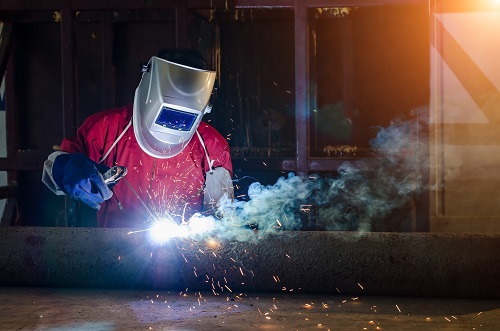New Edition of Global Pipeline Standard Enhances Safety, Strengthens Pipelines’ Environmental Sustainability
The American Petroleum Institute (API) today published Standard (Std) 1104, 22nd Edition, Welding of Pipelines and Related Facilities, updating an important global standard that supports industry-wide actions to strengthen environmental sustainability efforts while meeting growing energy demand.

“Standard 1104 is API's most widely utilized global standard, used in nearly 100 countries, and its update applies new technology advancements and improvements based on pipeline operating experience to increase safety and enhance environmental protection,” API Global Industry Services (GIS) Senior Vice President Debra Phillips said. “Federal regulations already incorporate previous editions of API 1104, and the updated document strengthens the safe and environmentally sustainable transmission of crude oil, carbon dioxide and a variety of petroleum-based products by pipeline.”
The new edition of API Std 1104 provides requirements for gas and arc welding used in the construction and in-service repair of pipes and components for the compression, pumping and pipeline transmission of crude oil, petroleum products, fuel gases, carbon dioxide and nitrogen. These requirements improve pipeline safety, structural integrity and efficiency by providing detailed welding procedures for qualified professional welders, inspectors and engineers.
The foundational document and the updates included in the new edition enhance practices during the operation, regular maintenance and repair of pipeline, reducing the possibility of structural breakdowns and releases. Changes in the 22nd edition of Std 1104 include:
- Modified qualifications for what constitutes repair welding, mechanized welding and in-service welding to add more specificity to the criteria under the standard.
- Clarifications and updates for welder requirements, such as testing parameters for welding and requalification requirements, to reduce ambiguity surrounding welder qualifications.
- Updates to requirements for the use of ultrasonic and radiographic inspection for girth welds, which are vitally important in maintaining a pipeline’s physical integrity, to help welders account for the latest high-strength materials, welding practices, equipment and inspection methods.
Portions of Std 1104 have been incorporated in regulations, mandating the use of the API requirements and recommendations for the majority of transmission pipelines in the United States. The U.S. Department of Transportation’s (DOT) Pipeline Hazardous Materials Safety Administration (PHMSA) incorporated the 20th edition of Std 1104 into its safety regulations for pipelines, and a notice of proposed rulemaking was published on January 14, 2021 to incorporate the 21st edition of Std 1104 into regulation. These important updates support the industry’s commitment to continuously improve operational safety and sustainability, while enhancing performance and efficiency.
Join API Sept. 1 for a webinar to highlight the significant changes to the new edition, and the impact these changes will have on the pipeline construction industry. For more information on API Std 1104, visit the API website at www.api.org.
Related News
Related News

- Enbridge Plans 86-Mile Pipeline Expansion, Bringing 850 Workers to Northern B.C.
- Intensity, Rainbow Energy to Build 344-Mile Gas Pipeline Across North Dakota
- U.S. Moves to Block Enterprise Products’ Exports to China Over Security Risk
- Strike Pioneers First-of-Its-Kind Pipe-in-Pipe Installation on Gulf Coast with Enbridge
- 208-Mile Mississippi-to-Alabama Gas Pipeline Moves Into FERC Review
- U.S. Pipeline Expansion to Add 99 Bcf/d, Mostly for LNG Export, Report Finds
- A Systematic Approach To Ensuring Pipeline Integrity
- 275-Mile Texas-to-Oklahoma Gas Pipeline Enters Open Season
- LNG Canada Start-Up Fails to Lift Gas Prices Amid Supply Glut
- Kinder Morgan Gas Volumes Climb as Power, LNG Demand Boost Pipeline Business




Comments